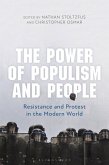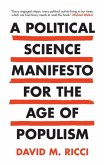Recent years have seen a disturbing advance in populist and authoritarian styles of rule and, in response, a rise in popular activism. Strongmen, especially since the advent of fascism, have formed their base of power in popular acclaim. But what power do the people have in checking the rise of tyranny?
In this book an international team of experts representing several academic disciplines examines the power relationship between peoples and their rulers. It is among the first to study this globally as a problem of nation states. From populism in 19th-century Latin America to eastern Europe since the collapse of communism, to the Arab Spring and contemporary Russia and China, the cases in this book span five continents and twelve nations. Taken together, they reveal how different forms of popular opposition have succeeded or failed in unseating authoritarian regimes and expose the tactics and strategies used by regimes to repress people power and create an image of popular support.
Analysing the causes and consequence of the global advance of authoritarianism, The Power of Populism and the People offers a historical comparison of popular protest, opposition and crises over the last century to the recent rise of populist leaders.
In this book an international team of experts representing several academic disciplines examines the power relationship between peoples and their rulers. It is among the first to study this globally as a problem of nation states. From populism in 19th-century Latin America to eastern Europe since the collapse of communism, to the Arab Spring and contemporary Russia and China, the cases in this book span five continents and twelve nations. Taken together, they reveal how different forms of popular opposition have succeeded or failed in unseating authoritarian regimes and expose the tactics and strategies used by regimes to repress people power and create an image of popular support.
Analysing the causes and consequence of the global advance of authoritarianism, The Power of Populism and the People offers a historical comparison of popular protest, opposition and crises over the last century to the recent rise of populist leaders.









